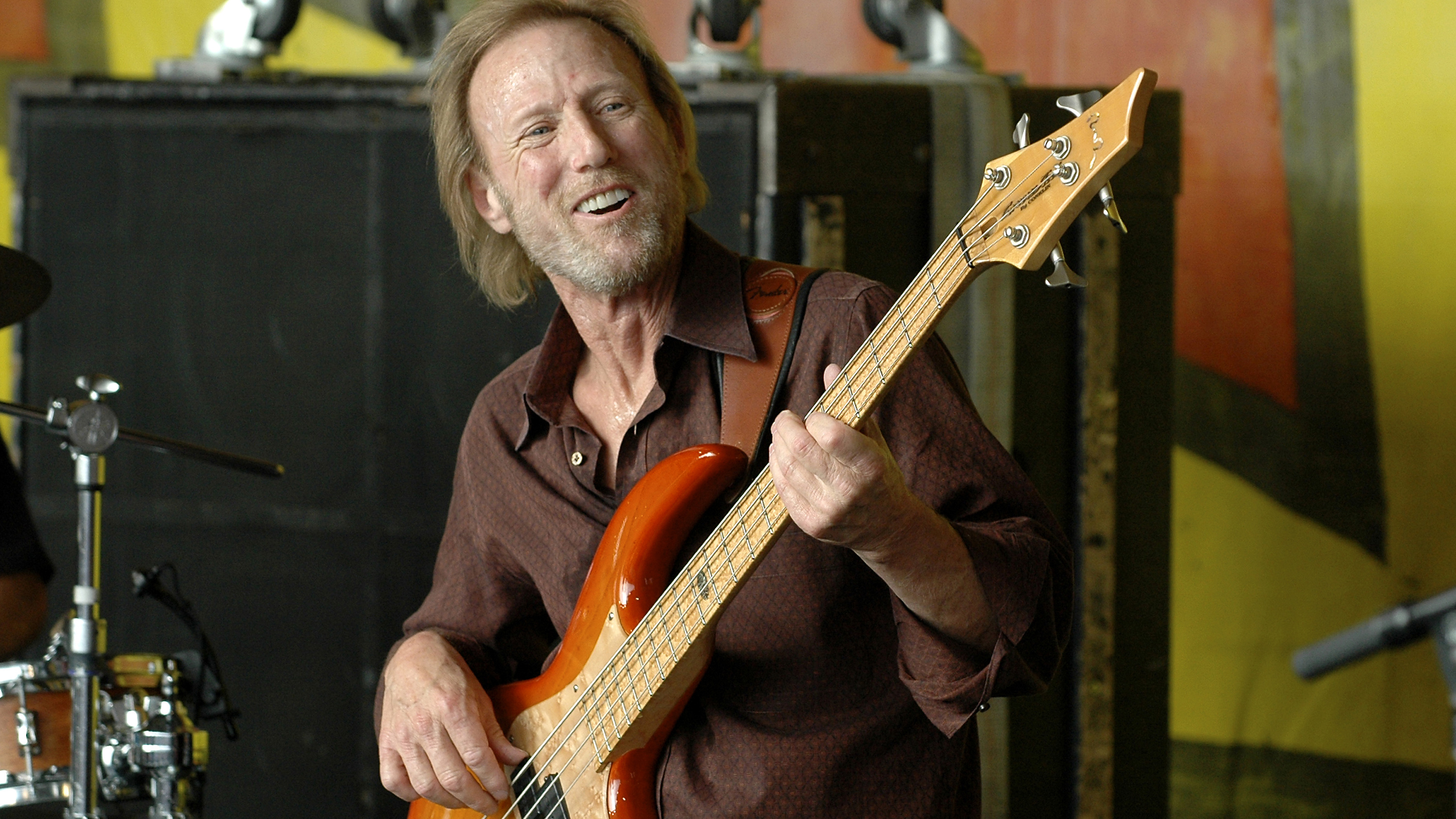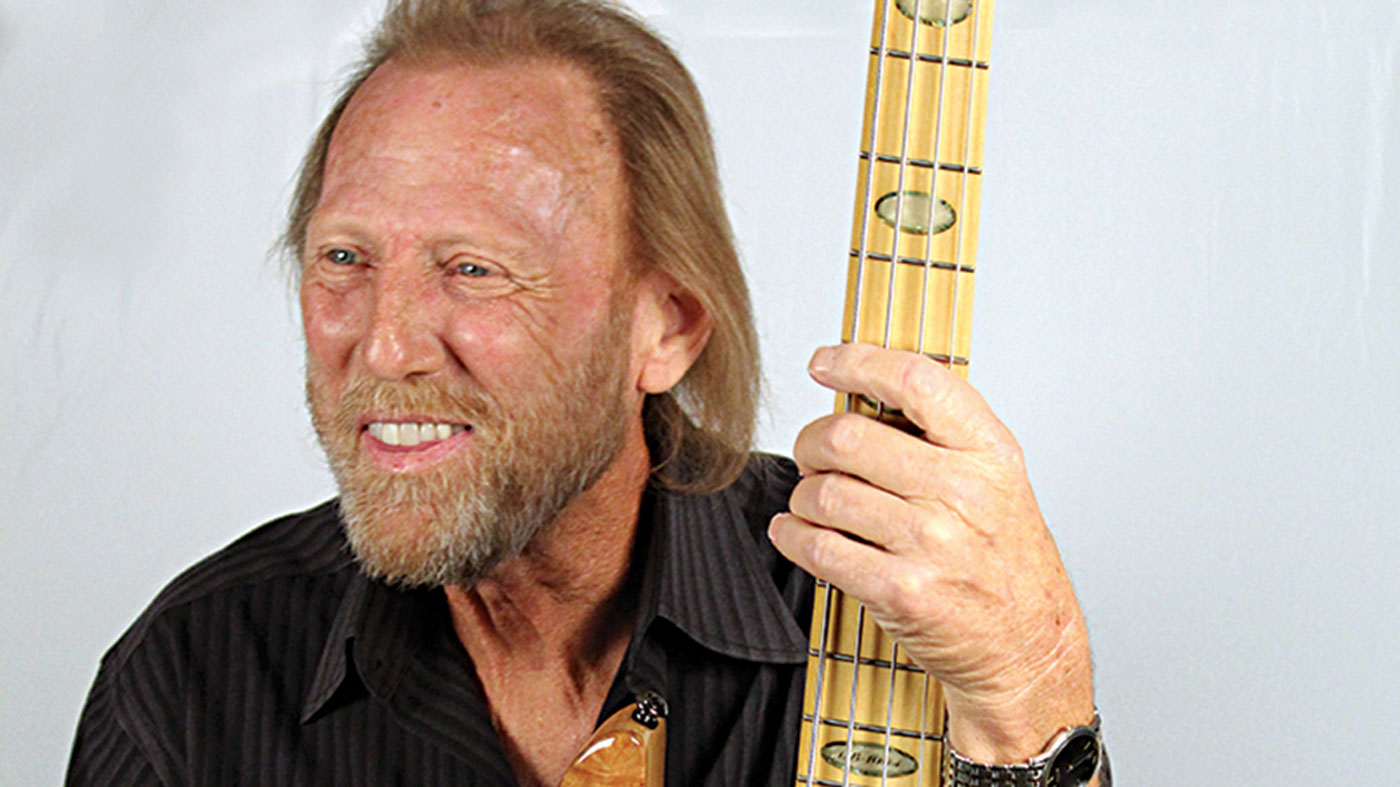
Want all the hottest music and gear news, reviews, deals, features and more, direct to your inbox? Sign up here.
You are now subscribed
Your newsletter sign-up was successful
Tower of Power's bassist Rocco Prestia has died at the age of 69.
The hugely influential fingerstyle funk musician had been battling various illnesses during the last 19 years and in 2014 he underwent a kidney transplant.
Tower of Power bandleader Emilio Castillo confirmed the sad news on the band’s official Facebook page, writing: “Our dear "Rocco" passed away last night, peacefully with his family by his side at a hospice in Las Vegas.
“As a bass player he was totally unique and as a person he was one of a kind. He fought a long fight over the last 20 years and now he's with the Lord and heaven is his home.
“To say that Francis Rocco Prestia was a huge part of the Tower of Power sound is a gross understatement. When people listened to Tower of Power it was always Rocco that they walked away talking about and he had a major impact on the music world.”
Born in Sonora, California in 1951, Prestia first began to play electric guitar at age 10, after his mother bought him a Sears Silvertone guitar and amp for Christmas.
At 14, he auditioned to join the band of classmate Emilio Castillo and this saw him switch to bass.
Want all the hottest music and gear news, reviews, deals, features and more, direct to your inbox? Sign up here.
"I took to bass really naturally"
“I joined Tower Of Power in 1965, when I was 14 years old," Prestia told us in 2017. "Before that I played guitar, although I was one of those guitarists whose mother would say ‘It’s time to practise!’ rather than picking it up myself: I really wasn’t much of a guitar player.
“When I joined the band, a guy named Terry Saunders would come in and teach the band new songs every week," he added. "He was a jazz guy from the Bay Area. He assessed everybody, and when he came to me, he said ‘You play bass’. I looked at him and said, ‘What’s a bass?’ - but that’s how it happened. I took to bass really naturally.”

The band would grow to add horns and add more originals alongside their covers of Stax and Motown staples under the name Tower Of Power. It was a reflection of the budding bassist's influences.
“I was listening to a lot of Motown, a lot of Memphis," Prestia explained to us in 2017. "At that time, different cities were associated with different sounds. Philly soul, Stax, Muscle Shoals - you know what I mean? I was listening to all that, but I didn’t really know who the players were until much later. I learned about James Jamerson, Willie Weeks, Chuck Rainey and Duck Dunn after that.”
Rocco Prestia would become known for his staccato, fret hand muting style of playing that helped him to stand out as bassist.
“It just evolved. It wasn’t something I thought about," Prestio explained to us. "When [drummer] David Garibaldi joined the band in 1970, I had that Motown and Memphis feel, while he had all these incredible ideas and he was very busy. He plays a lot of ghosting as well. The two styles, when they mixed, just clicked.”
After legendary music promoter Billy Graham saw a Tower of Power performance at the Fillmore in San Francisco, he signed the band to his management company. Tower of Power released their debut album, East Bay Grease, in 1970 on Graham’s own San Francisco Records.
By 1977 Prestio had parted ways from TOP, but stayed active playing blues gigs in the Bay Area, sharing stages with the likes of Albert King and Albert Collins.
He rejoined Tower Of Power in the mid ‘80, touring and recording with the band while releasing his own solo albums and tuition videos in the '90s.
"Being appreciated by the bass community makes me proud: that’s a nice thing"
But in 2018 he parted ways with the band again, with TOP citing his ongoing health issues as the reason.
“It’s sad and disappointing,” Prestia said at the time. “I feel like I’m being put out to pasture. But they made their decision, and it is what it is. It’s time for me to move on.”
His legacy as one of the greats of bass remains formidable regardless. And when we asked Prestio to reflect on the highlights of his career, he had this to say.
“Being appreciated by the bass community makes me proud: that’s a nice thing. I never really thought too much about it until we’d done a few albums, and one day I was talking to somebody and he said ‘What you guys are doing is pretty special’. I thought about it and realised that yes, what we do is kinda special.”
3-7-FOREVER pic.twitter.com/qoS0crg1QuSeptember 30, 2020
My dear friend Rocco Prestia, u were my musical journey, playing bass w/ tower power ur entire life until u passed last night. U will truly be missed. prayers 2family & tower of power fam. God bless U @towerofpowerofficialband pic.twitter.com/PCVHLflkaNSeptember 30, 2020

Rob is the Reviews Editor for GuitarWorld.com and MusicRadar guitars, so spends most of his waking hours (and beyond) thinking about and trying the latest gear while making sure our reviews team is giving you thorough and honest tests of it. He's worked for guitar mags and sites as a writer and editor for nearly 20 years but still winces at the thought of restringing anything with a Floyd Rose.